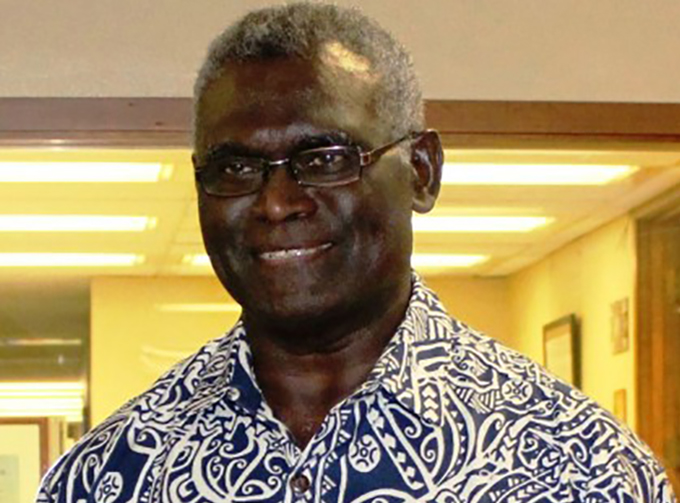Pacific Media Watch newsdesk
Solomon Islands Prime Minister Manasseh Sogavare has warned the news media that the country’s emergency powers enable the government to target “yellow journalism” and the spreading of misinformation, reports the Solomon Islands Herald.
Speaking in Parliament on a motion to extend the covid pandemic State of Public Emergency by a further four months, Sogavare said the rationale for having this provision was to ensure individuals or the news media did not spread rumours or misinformation that cause disturbances may divert much needed resources.
“I respect our freedom to express ourselves but I must say that I am extremely disappointed in how some individuals and mainstream media have continued to disseminate rumours and misinformation to our people,” he said.
The Emergency Powers (COVID-19) (No.2) Regulations 2021 have provisions relating to yellow journalism.
Sogavare cited recent media reports that had been published in the past few days as “pathetic and disappointing”, especially since the publications were “mere rumours, misinformation and just outright lies”.
“The government has been very tolerant of these malicious lies and rumours published in the media. We have demonstrated restraint but I must say our patience and restraint is surely tested with this yellow journalism,” Prime Minister Sogavare said.
The press, though not formally recognised as an established part of the formal political system, played the role of the watchdog over the formally established three estates of the state — judiciary, legislature and executive.
Role of watchdog
Prime Minister Sogavare said the role of the watchdog must be based on the press providing verified and reliable information to the public.
He said the press was accorded the title of “Fourth Estate” because of the confidence and trust that the public had in the press as the watchdog.
Quoting Franklin D. Roosevelt, the Prime Minister said: “Freedom of the press is essential to the preservation of a democracy; but there is a difference between freedom and licence.
“Editorialists who tell downright lies in order to advance their own agendas do more to discredit the press than all the censors in the world.”
Prime Minister Sogavare also quoted Arthur Hays Sulzberger, publisher of The New York Times from 1935 to 1961, saying: “Perhaps we ought to ask ourselves just what freedom of the press really is. Whose freedom is it?
“Does it merely guarantee the right of the publisher to do and say whatever he wishes, limited only by the laws of libel, public order and decency?
“Is it only a special licence to those who manage the units of the press? The answer, of course, is no.
‘Freedom of the press’
“Freedom of the press — or, to be more precise, the benefit of freedom of the press belongs to everyone — to the citizen as well as the publisher,” he said.
“The publisher is not granted the privilege of independence simply to provide him with a more favoured position in the community than is accorded to other citizens. He enjoys an explicitly defined independence because it is the only condition under which he can fulfil his role, which is to inform fully, fairly and comprehensively.
“The crux is not the publisher’s ‘freedom to print’; it is rather the citizens’ ‘right to know’, Sogavare added.
- “Yellow journalism” is an American expression referring to newspapers that present poorly researched and unverified news while using eye-catching headlines for increased sales. Techniques may include exaggerations of news events, scandal-mongering, sensationalism, rumours or false information. In the Pacific context, the phrase often means any journalism critical of governments.












































